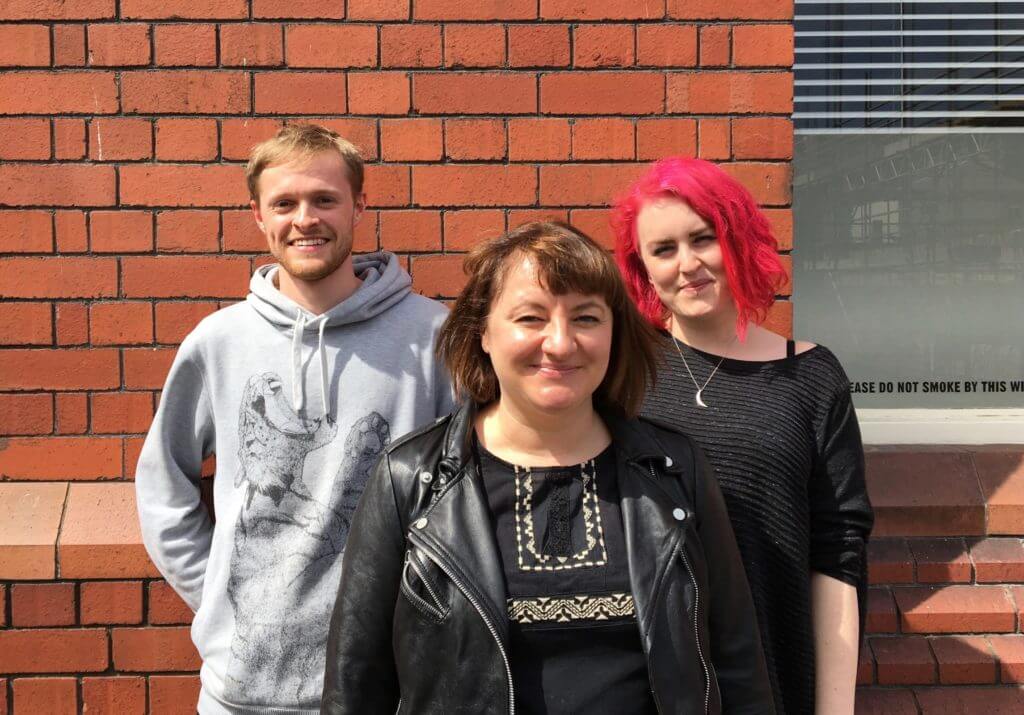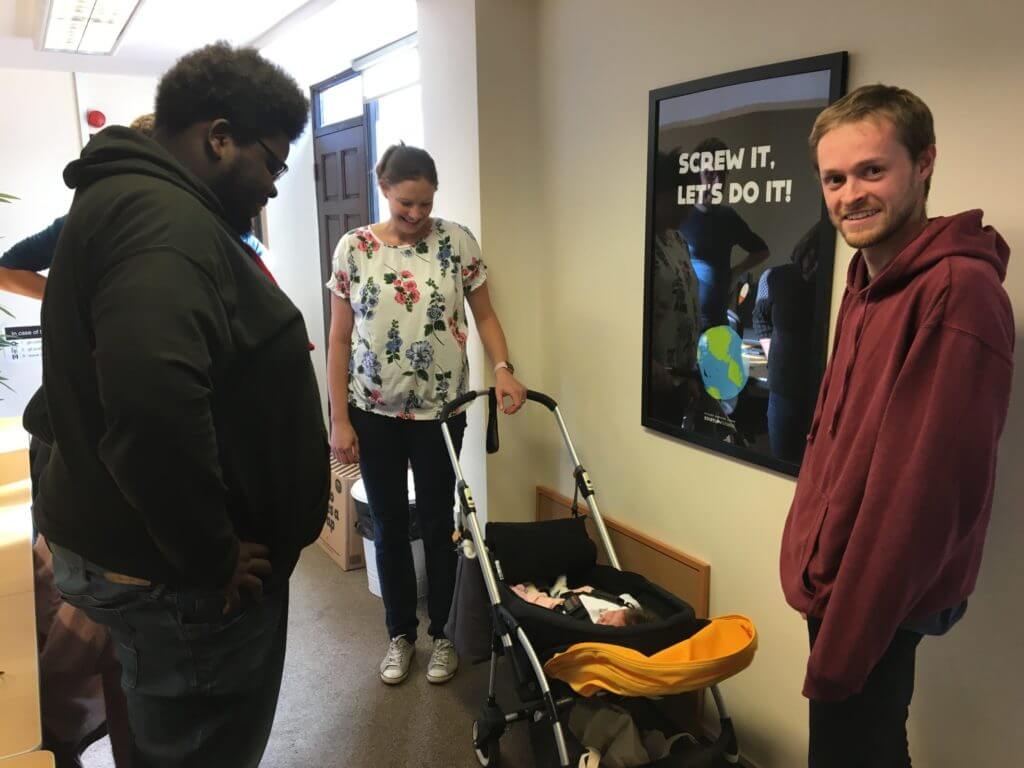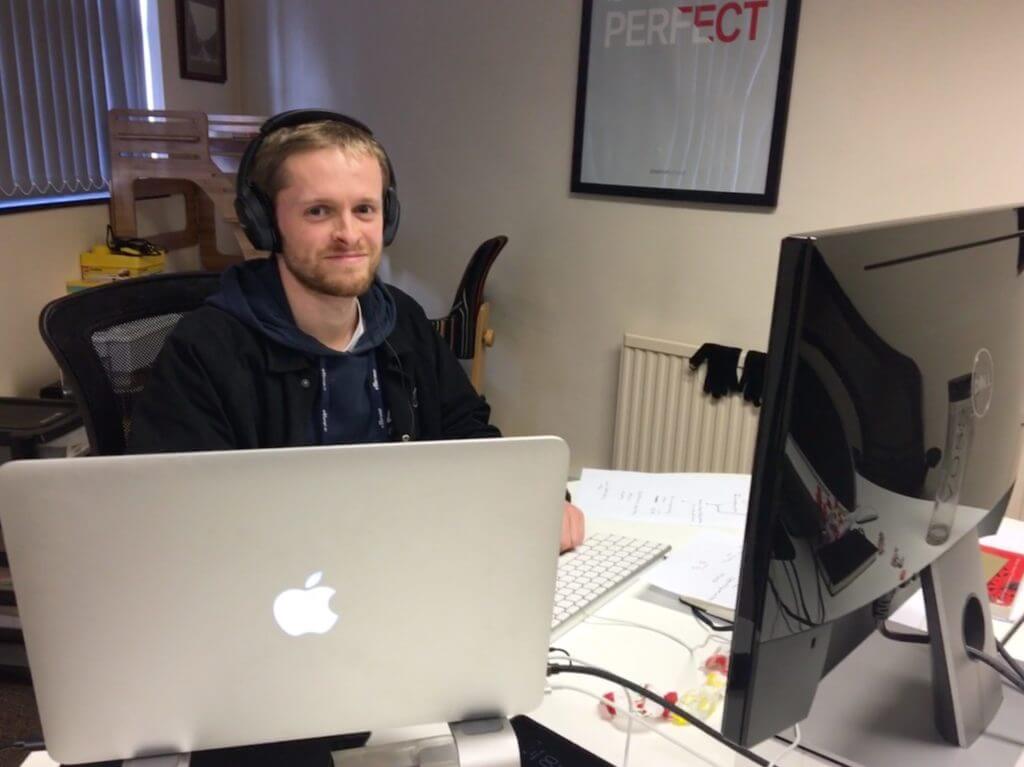I’m CookiesHQ’s newest back-end developer… but I never completed a computing degree. Here’s how I researched, self-taught and networked my way into my first professional development role.
I never got to do any kind of coding at school, so my first experience of computer programming was at university. It was my favourite module – I loved how I could create something functional with nothing but words.
But it wasn’t enough to make me drop out of my engineering degree, and it wasn’t until much later that I realised web development was the right path for me.
Here’s how I transitioned careers with very little initial coding experience.

Find a reason to code
After finishing my degree, I ended up working as an acoustic consultant but quickly realised it wasn’t for me. While trying to figure out what do, I remembered how much I’d enjoyed programming at uni.
I suggested to my boss that I should automate a lot of the repetitive tasks that we were doing manually in MS Excel, and he was all for it.
Getting to spend time creating and maintaining Excel add-ins with simple graphical user interfaces confirmed how much better I felt programming. Doing a little bit every day made me realise how much I needed to find a job in the software industry.
Do your research
Through my own research into how to get started as a software developer, I found there were a lot of people in my position. Like me, they didn’t get any exposure to programming at school and only realised a passion for software after heading down a completely different route.
Luckily, the tech industry isn’t strict about formal qualifications. The advice I was given – and would give to anyone else – was to learn as much as possible and create a portfolio to show off to prospective employers.
‘Choose a language that allows you make things you’re interested in – it’ll give you the motivation to keep learning.’
Pick a language…
I found the sheer breadth of possible routes to take overwhelming. I didn’t understand the nuance between languages, or why I should pick one over another.
After talking to some professional developers, I realised that it doesn’t really matter which one I start with. If I ended up taking a job using a different language to the one I learnt initially it would only make me a more well-rounded developer.
So I picked Java, mostly because I was interested in Android development, and because a free online course came highly recommended. Choosing an option that allows you make things you’re interested in is best because it’ll give you the motivation to keep learning.
… but keep your options open
I never narrowed down my job search to a particular field of software development, as I didn’t want to limit the few options I had.
Ultimately, the language I’m using isn’t important. For me, web dev is about using the most appropriate tools to make useful web apps that anyone can use in their daily life – even my mum. That attitude helped me see the bigger picture and stay open to learning new skills.

Find free resources
From the beginning, I used online resources and jumped in with only a basic knowledge of coding. The amount of free support available makes it very possible to become a successful self-taught developer.
I completed the University of Helsinki’s free online course on programming with Java – it was the first time I learned about object-oriented design and I felt sure I was on the right track.
I couldn’t have afforded to go back to uni or live in Bristol on apprentice wages. Taking advantage of online courses allows you to test the waters without risking your current career or getting into debt.
Start a personal project
I then started building an Android app that I could use in my day job when I was conducting surveys.
This was was my first time coding within a framework, and it gave me a better understanding of how a real-world software application might be structured. The app was written terribly, but I managed to knock together something that worked.
Creating my own app meant that, when the time came to start applying for jobs, I had a working product that showcased my skills.
‘Without sending my CV out into the void, I wouldn’t have known what was actually out there.’
Take a chance
It was still hard to imagine getting a job and having any degree of competency, but I was desperate to become a developer and started firing off CVs as soon as I completed my online course.
I needed a graduate job with a company that would consider someone without a computer science degree. A role with a heavy focus on training and development in the first year. I wasn’t sure that job even existed, so I was surprised when a few people started to bite on my CV.
If you get into the habit of applying for jobs early on, you’ll get better at identifying good opportunities and finding the kind of jobs you could do. Without sending my CV out into the void, I wouldn’t have known what was actually out there.
Make connections
My job search became much easier when I began making connections in the industry. I went to techie events open to newbies, joined meetup groups and found people who were happy to give me pointers and make introductions.
And then I got lucky. I reached out to the local software development community through Reddit and Stack Overflow, explaining my situation and asking for advice.
CookiesHQ founder Nic saw one of my posts and contacted me, saying they were looking for a junior web developer to train up. I was in!
It turns out there are plenty of employers out there who are willing to take on people with all of the enthusiasm, but none of the experience. The trick is to make yourself as visible as possible.

Hit the ground running
I had no experience with Ruby on Rails, or any of the other languages I’d be using: JavaScript, HTML, CSS… But I found Ruby very accessible, with a friendly, supportive community.
The first couple of weeks were full on. I studied in my own time and took every learning opportunity I could to ease the transition. Week by week, things started to get easier.
I have now worked at CookieHQ for the best part of a year and I thoroughly enjoy my job. I still have a lot to learn, and approaching problems I haven’t had to solve before can be intimidating and confusing – but I’m experiencing this less and less often.
I can confidently say that leaving my previous career and starting a new one in software development was the right choice for me. If you feel you have a similar enthusiasm, follow these tips, take a chance – and absolutely go for it.
Want to work with us?
We have some upcoming vacancies in our design and development teams. Please send prospective CVs to hello@cookieshq.co.uk.
No agencies please.